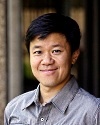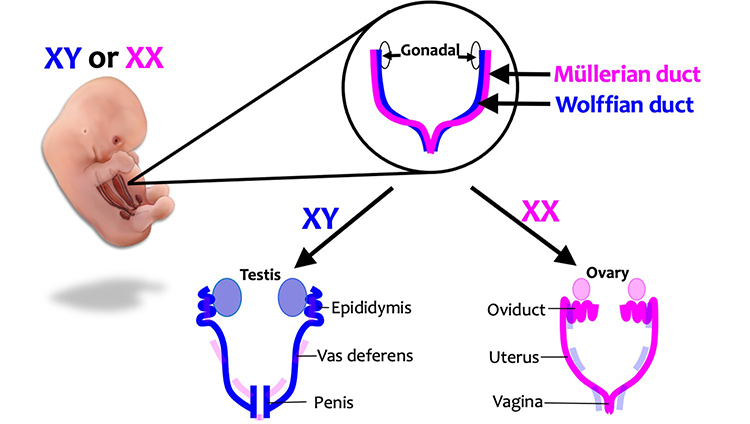Reproductive & Developmental Biology Laboratory

Research Summary
Humphrey Yao, Ph.D., leads the Reproductive Developmental Biology Group in the Reproductive & Developmental Biology Laboratory (RDBL) at NIEHS. He also holds a secondary appointment in the NIEHS Epigenetics & RNA Biology Laboratory. The main thrust of his group is to define the normal process of how sex-specific reproductive organs are established, and investigate whether this process is susceptible to harmful chemicals or maternal stress.
Compelling animal evidence and human epidemiological data have revealed that impairment of organ development has profound consequences on adult health. The concept of "developmental origins of adult diseases" also applies to the reproductive systems where formation of most reproductive organs is completed before birth. Defects in reproductive organ formation are main causes of birth defects in reproductive organs. However, minor abnormalities are often left undetected and become a potential cause of fertility problems and neoplasia when the affected individual reaches adulthood.
The Reproductive Developmental Biology Group uses organogenesis of gonads, reproductive tracts, and external genitalia as a model to delineate the basic process of organ formation and the potential implication of the impacts of environment on reproductive organ formation and fertility in adulthood. Reproductive organs are one of the few organs that exhibit dramatic sex-specific pattern of development. This unique pattern of development provides a model to understand not only the mechanism of reproductive organ formation, but also how progenitor cells make the decision to differentiate into tissue-specific cell types, the fundamental concept of biology.

Major Areas of Research:
- Understand how different somatic cell lineages (Sertoli and Leydig cells in the testis and granulose and theca cells in the ovary) are formed in the developing testis and ovary, respectively.
- Define the cellular processes that lead to dimorphic establishment of the reproductive tracts and external genitalia.
- Investigate the susceptibility of reproductive organs to harmful chemicals and maternal stress, and lingering impacts on fertility in adulthood.
Current Projects:
- Define the linage progression roadmap of somatic cells in the gonads, reproductive tracts, and external genitalia by combined single cell mRNA and ATAC sequencing.
- Identify novel players in gonadal organogenesis using conditional genetic approaches, ChIP-seq, ATAC-seq, and RNA-seq.
- Uncover novel regulators (RUNX1, NR2F2, etc.) responsible for the establishment of dimorphic reproductive organs.
- Examine the impact of harmful chemicals and maternal stress on reproductive organ development and fertility.
Yao received his doctoral degree at the University of Illinois in Urbana-Champaign in 1999 and then completed his postdoctoral training at Duke University Medical Center in 2002. He became Assistant Professor in the Department of Comparative Biosciences at University of Illinois in Urbana-Champaign in 2003 and received tenure in 2009. Yao moved to NIEHS in 2010 and was promoted to Senior Investigator in 2018.


